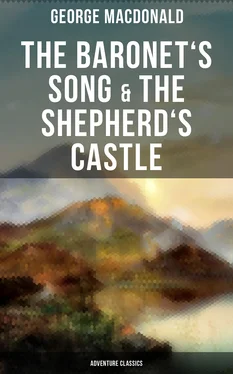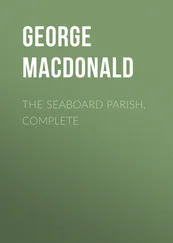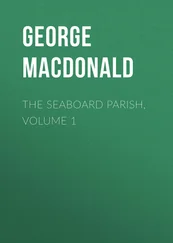1 ...8 9 10 12 13 14 ...51 Gibbie obeyed, and getting under the Gordon tartan, lay and looked out, like a weasel from its hole, at his father's back. For half an hour or so Sir George went on drinking. All at once he started to his feet, and turning towards the bed a white face distorted with agony, kneeled down on the box and groaned out:
"O God, the pains o' hell hae gotten haud upo' me. O Lord, I'm i' the grup o' Sawtan. The deevil o' drink has me by the hause. I doobt, O Lord, ye're gauin' to damn me dreidfu'. What guid that'll do ye, O Lord, I dinna ken, but I doobtna ye'll dee what's richt, only I wuss I hed never crossed ye i' yer wull. I kenna what I'm to dee, or what's to be deene wi' me, or whaur ony help's to come frae. I hae tried an' tried to maister the drink, but I was aye whumled. For ye see, Lord, kennin' a' thing as ye dee, 'at until I hae a drap i' my skin, I canna even think; I canna min' the sangs I used to sing, or the prayers my mither learnt me sittin' upo' her lap. Till I hae swallowed a mou'fu' or twa, things luik sae awfu'-like 'at I'm fit to cut my thro't; an' syne ance I'm begun, there's nae mair thoucht o' endeevourin' to behaud (withhold) till I canna drink a drap mair. O God, what garred ye mak things 'at wad mak whusky, whan ye kenned it wad mak sic a beast o' me?"
He paused, stretched down his hand to the floor, lifted the mug, and drank a huge mouthful; then with a cough that sounded apologetic, set it down, and recommenced:
"O Lord, I doobt there's nae houp for me, for the verra river o' the watter o' life wadna be guid to me wantin' a drap frae the boatle intil 't. It's the w'y wi' a' hiz 'at drinks. It's no 'at we're drunkards, Lord—ow na! it's no that, Lord; it's only 'at we canna dee wantin' the drink. We're sair drinkers, I maun confess, but no jist drunkards, Lord. I'm no drunk the noo; I ken what I'm sayin', an' it's sair trowth, but I cudna hae prayt a word to yer lordship gien I hadna had a jooggy or twa first. O Lord, deliver me frae the pooer o' Sawtan.—O Lord! O Lord! I canna help mysel'. Dinna sen' me to the ill place. Ye loot the deils gang intil the swine, lat me tee."
With this frightful petition, his utterance began to grow indistinct. Then he fell forward upon the bed, groaning, and his voice died gradually away. Gibbie had listened to all he said, but the awe of hearing his father talk to one unseen, made his soul very still, and when he ceased he fell asleep.
Alas for the human soul inhabiting a drink-fouled brain! It is a human soul still, and wretched in the midst of all that whisky can do for it. From the pit of hell it cries out. So long as there is that which can sin, it is a man. And the prayer of misery carries its own justification, when the sober petitions of the self-righteous and the unkind are rejected. He who forgives not is not forgiven, and the prayer of the Pharisee is as the weary beating of the surf of hell, while the cry of a soul out of its fire sets the heart-strings of love trembling. There are sins which men must leave behind them, and sins which they must carry with them. Society scouts the drunkard because he is loathsome, and it matters nothing whether society be right or wrong, while it cherishes in its very bosom vices which are, to the God-born thing we call the soul, yet worse poisons. Drunkards and sinners, hard as it may be for them to enter into the kingdom of heaven, must yet be easier to save than the man whose position, reputation, money, engross his heart and his care, who seeks the praise of men and not the praise of God. When I am more of a Christian, I shall have learnt to be sorrier for the man whose end is money or social standing than for the drunkard. But now my heart, recoiling from the one, is sore for the other—for the agony, the helplessness, the degradation, the nightmare struggle, the wrongs and cruelties committed, the duties neglected, the sickening ruin of mind and heart. So often, too, the drunkard is originally a style of man immeasurably nobler than the money-maker! Compare a Coleridge, Samuel Taylor or Hartley, with—no; that man has not yet passed to his account. God has in his universe furnaces for the refining of gold, as well as for the burning of chaff and tares and fruitless branches; and, however they may have offended, it is the elder brother who is the judge of all the younger ones.
Gibbie slept some time. When he woke, it was pitch dark, and he was not lying on his father's bosom, He felt about with his hands till he found his father's head. Then he got up and tried to rouse him, and failing to get him on to the bed. But in that too he was sadly unsuccessful: what with the darkness and the weight of him, the result of the boy's best endeavour was, that Sir George half slipped, half rolled down upon the box, and from that to the floor. Assured then of his own helplessness, wee Gibbie dragged the miserable bolster from the bed, and got it under his father's head; then covered him with the plaid, and creeping under it, laid himself on his father's bosom, where soon he slept again.
He woke very cold, and getting up, turned heels-over-head several times to warm himself, but quietly, for his father was still asleep. The room was no longer dark, for the moon was shining through the skylight. When he had got himself a little warmer, he turned to have a look at his father. The pale light shone full upon his face, and it was that, Gibbie thought, which made him look so strange. He darted to him, and stared aghast: he had never seen him look like that before, even when most drunk! He threw himself upon him: his face was dreadfully cold. He pulled and shook him in fear—he could not have told of what, but he would not wake. He was gone to see what God could do for him there, for whom nothing more could be done here.
But Gibbie did not know anything about death, and went on trying to wake him. At last he observed that, although his mouth was wide open, the breath did not come from it. Thereupon his heart began to fail him. But when he lifted an eyelid, and saw what was under it, the house rang with the despairing shriek of the little orphan.
CHAPTER VII.
THE TOWN-SPARROW.
Table of Contents
"This, too, will pass," is a Persian word: I should like it better if it were "This, too, shall pass."
Gibbie's agony passed, for God is not the God of the dead but of the living. Through the immortal essence in him, life became again life, and he ran about the streets as before. Some may think that wee Sir Gibbie—as many now called him, some knowing the truth, and others in kindly mockery—would get on all the better for the loss of such a father; but it was not so. In his father he had lost his Paradise, and was now a creature expelled. He was not so much to be pitied as many a child dismissed by sudden decree from a home to a school; but the streets and the people and the shops, the horses and the dogs, even the penny-loaves though he was hungry, had lost half their precious delight, when his father was no longer in the accessible background, the heart of the blissful city. As to food and clothing, he did neither much better nor any worse than before: people were kind as usual, and kindness was to Gibbie the very milk of mother Nature. Whose the hand that proffered it, or what the form it took, he cared no more than a stray kitten cares whether the milk set down to it be in a blue saucer or a white. But he always made the right return. The first thing a kindness deserves is acceptance, the next is transmission: Gibbie gave both, without thinking much about either. For he never had taken, and indeed never learned to take, a thought about what he should eat or what he should drink, or wherewithal he should be clothed—a fault rendering him, in the eyes of the economist of this world, utterly unworthy of a place in it. There is a world, however, and one pretty closely mixed up with this, though it never shows itself to one who has no place in it, the birds of whose air have neither storehouse nor barn, but are just such thoughtless cherubs—thoughtless for themselves, that is—as wee Sir Gibbie. It would be useless to attempt convincing the mere economist that this great city was a little better, a little happier, a little merrier, for the presence in it of the child, because he would not, even if convinced of the fact, recognize the gain; but I venture the assertion to him, that the conduct of not one of its inhabitants was the worse for the example of Gibbie's apparent idleness; and that not one of the poor women who now and then presented the small baronet with a penny, or a bit of bread, or a scrap of meat, or a pair of old trousers—shoes nobody gave him, and he neither desired nor needed any—ever felt the poorer for the gift, or complained that she should be so taxed.
Читать дальше












